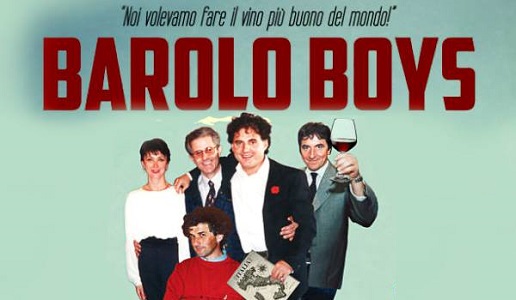Elio Altare and the origin of the Barolo Boys

They were defined as “modernists” for using barriques but – in the context of the time period – the Barolo Boys were more of a social phenomenon than promoters of a stylistically different way of making wine.
“Ciao, Daniele, it’s Elio Altare. We haven’t spoken for a while and so thought I’d call you”. His call gave me immense pleasure also because, during our one-hour conversation, we recalled a slew of episodes that led to the birth of that group of producers who were later dubbed “the Barolo Boys”, about whom a film was even made.
It all took place in the latter half of the 1970s when there were three very complicated years for the Langhe: 1975, ’76 and ’77. The harvests were difficult, they were wet years and the grapes had trouble ripening. Many winegrowers opted not to make wine and simply sold their grapes through intermediaries to local bottlers or “industrial” producers. Under those circumstances, those looking for the best price would wait till the end before making an offer to winegrowers confident that, since they had not yet harvested their grapes and it continued to rain, they would all their harvest for a pittance.
Elio, who was 25 at the time, rebelled against this situation. He got himself some winemaking equipment and began to produce wine on his own. And he was perhaps the first in his generation to do so. For sure, there were some other small producers like Mascarello, Conterno and Pira, first of all, but they were the heirs of family and agricultural traditions that were at least a few generations old. It was different for Elio. He was very young and had to start from scratch and it wasn’t either.
He decided to use barriques for maturing and this was not a stylistic choice as much as one of practicality, given that he didn’t have enough wine to fill big barrels. Added to this was the fact that he had gotten to know some vignerons from Burgundy and he knew that Angelo Gaja, who he had always claimed was his inspiration, used them. He then decided to let the wine mature less on the skins in the must, in order to obtain a wine that could be consumed earlier, since he did not have the time nor, above all, the money to wait too long. And so it began.
He then became a model for others, he freed himself from the oppressive blackmail of the intermediaries and several years later, in the early 1980s, many small winemakers followed his example and approach. People like Luciano Sandrone, Roberto Voerzio, Domenico Clerico and Elio Grasso, along with Matteo Correggia in Roero and Giorgio Rivetti in Castagnole delle Lanze, just to name a few. Each had their own ideas with different approaches but all shared the common intention of making their own wine and not selling their grapes on the cheap as had earlier often been the case.
This all represented a social phenomenon more than a different stylistic approach to winemaking and thus simplifying it all down to the use of barriques, shortening maturation periods and practicing green pruning, before the grapes begin to ripen, would be reductive and not render justice to the true causes of an authentic winemaking revolution in the Langhe.
As is often the case in Italy, as well as elsewhere, polemics and confrontations developed between “traditionalists” and “modernists” with most wine critics choosing one side or the other. I do not wish to dredge up all the various episodes, some of which were anything but pleasant. However, I do want to recall one. In the middle of the most “polemic” period, Carlo Petrini asked me to conduct a comparative tasting at Slow Food’s Salone del Vino in Turin. On the table were three Barolo from Elio Altare and three from Giovanni Conterno, in other words the respective mentors of the innovators and the traditionalists, with both taking part in the tasting. I had expected some friction and even bitter exchanges of view, instead, each was very considerate to the other and at the end Giovanno Conterno, the great gentleman that he was, remarked: “Today, we tasted some excellent Barolo”. I need say nothing more.

 Italiano
Italiano







